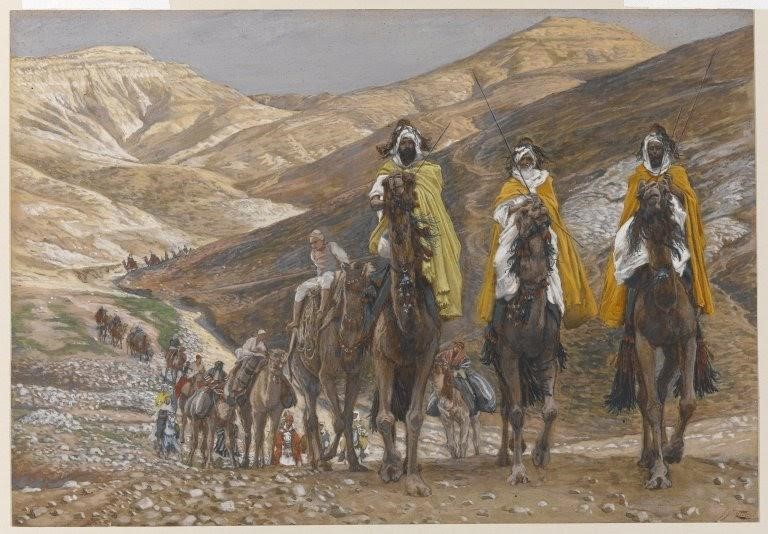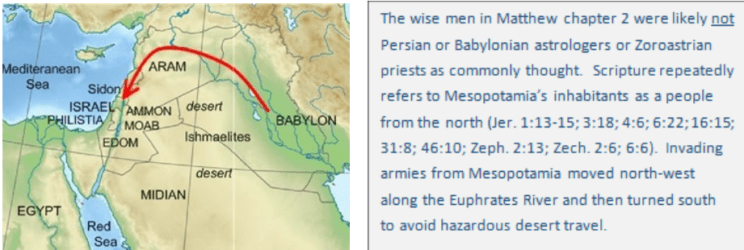
This post is the second in a multi-part series revealing the gifts Christians from other countries bring to our American campus communities and churches. This part focuses on the gifts Middle East Christians bear.
With roots extending back to Jesus’ ministry, Pentecost, and the early church’s witness, Middle Eastern Christians faithfully persevere in unbroken witness to Christ. Despite obstacles and challenges, thousands are coming to the Savior, particularly within the Arab and Persian worlds. They offer inspiring examples of patient endurance in life’s sufferings and struggles. Too often, however, disinformation and negative stereotypes fuel misperceptions that hinder us from receiving their gifts.
Ignored, Discredited, Dehumanized
Dr. Munther Isaac speaks to these harsh realities in his book, The Other Side of the Wall: A Palestinian Christian Narrative of Lament and Hope. As an heir to the unbroken Christian presence in the land of Jesus, Dr. Isaac serves as the Academic Dean and Professor at Bethlehem Bible College in Bethlehem, Palestine. He tells of strikes, school closures, street marches, checkpoints, and military-imposed curfews within Jesus’ place of birth.[1] “I still have clear and vivid memories of the demonstrations […] in front of our house, being slapped in the face by a soldier when I was eleven years old, and lying on the floor in fear because of shooting outside our house,” he writes.[2]
Dr. Isaac also painfully recounts repeatedly having his and his Palestinian fellow workers’ speaking invitations withdrawn. After he was disinvited by organizers of a major U.S. 2018 student missions conference, Dr. Isaac told them, “[It’s] a shame [you] rid thousands of students and future leaders of the opportunity of meeting a Palestinian Christian for the first time and changing their preconceived notions of Arabs and Palestinians.”[3]
Some Christian teachers perpetuate these preconceived notions. Their biased interpretations provide a cover for toxic stereotypes of Arabs and Muslims.
Ishmael Framed
Most Arabs revere Ishmael as their patriarch, and many non-Arab Muslims view themselves as Ishmael’s spiritual descendants. Biblical teachers sometimes cite Scripture’s depiction of Ishmael as “a wild donkey of a man” (see Gen. 16:12) as evidence of his supposedly hostile nature.[4] Some even characterize Arabs and Muslims today as Ishmael’s hostile offspring. A quick Google search of the spirit of Ishmael reveals multiple Bible teachers citing radical Islam and violent jihadism as proof that “Ishmael’s spirit” remains.
As with Ishmael, Scripture uses animal imagery to portray Jacob’s family (see Gen. 49). Jacob mediated God’s blessings to generations of Israelites. The Israelite patriarch depicted his sons Judah (lion) and Benjamin (wolf) as predators, stalking and tearing their prey apart (vv. 9, 27). Judah and Benjamin’s tribes brought the Jews military strength, vital for their national survival and security in the violent ancient world.[5]
Bible scholars do not infer that the tribal descendants of Judah (lion) and Benjamin (wolf) are hostile peoples. But too many treat Ishmael’s line (wild donkey) differently.
The newly revised Genesis installment in the IVP Bible Speaks Today series commentary on Genesis 16:12 reads, “Even today Arab descendants of Ishmael are in dispute with their neighbours who have descended from Isaac, and they continue to manifest a rugged independence.”[6] Another popular commentary refers to Ishmael as “the father of a great tribe of wild, hostile people, […] a [bitter] harvest that is still being reaped today. Ishmael became the ancestor of the Arabs, who are still hostile to the Jews,” the text reads.[7] Other commentators cite a New Testament reference to Ishmael’s supposed persecution of Isaac as evidence of his hostility, even though the context shows that Paul is speaking allegorically.[8] Paul himself says: “These things may be taken figuratively” (Gal. 4:24).
How many U.S. Christians absorb these mischaracterizations of Ishmael and slip into disparaging and even racist views?[9] Might these misperceptions cause a deterministic or fatalistic view of Jewish and Arab relations? Do Middle Eastern peoples feel the American church is a safe place for them?
Post 9-11, Arab American Derek Rishmawy—a RUF Campus Minister and Ph.D. student at Trinity Evangelical Divinity School—became frustrated by the implications of evangelicals: “that my entire ethnic heritage was an unfortunate mistake. [They suggest] this whole conflict in the Middle East could’ve been avoided if Abraham had just been patient and not fathered Ishmael—and the Arabs never existed,” he laments.
A Counter Narrative
The current Middle East conflict does not reflect the pattern of biblical history.
Hostilities between Ishmael’s Arab descendants and Isaac’s Jewish offspring occur infrequently.[10] The Pentateuch does not mention any conflict between Ishmael’s and Isaac’s families. Israel experienced far more conflict with other peoples related to Abraham.[11] The Hebrew prophets do not speak of Ishmaelite oppression.
The biblical record does not portray Ishmael and his offspring as hostile, violent, and fiercely anti-social.
Scripture does include beautiful promises concerning Ishmael.
Ishmael: God Hears
[Trigger Warning: Biblical descriptions of rape and violence. Survivors may feel traumatized by God commanding Hagar to return to the abusive home she had fled. Applications suggesting that God calls, for example, battered wives to return and submit to their abusive husbands are unwarranted.]
Ishmael’s story begins with his Egyptian mother in Genesis 16. Hagar is used as a surrogate mother by her barren enslavers. She flees Sarah and Abraham’s abuse.
The LORD visits Hagar—pregnant, homeless, alone, afflicted, and humiliated—in a remote desert. He tells her to return and submit to Sarah, but this time armed with a promise. The LORD vows that Hagar will become the mother of a great multitude. Hagar’s son will be called Ishmael, which means “God hears” because God has heard her misery.
Ishmael: Wild And Free
To Hagar, a powerless slave, God promises Ishmael, a powerful son. Hagar submits to her slave masters. Ishmael—“a wild donkey of a man”—is subject to no one; he is neither harnessed nor tamed.[12] By day, he freely roams the wilderness. At night, he erects his tent under the unparalleled beauty of the star-studded desert sky.
Ishmael: God With Him
“O that Ishmael might live before you,” Abraham prayed for his firstborn (17:18). Indeed, the Lord remains “with the boy as he grows,” becoming a skilled archer (Gen. 21:20; cf. 17:18).[13]
Later, Ishmael joins his half-brother Isaac to bury their father (Gen. 25:9). The Lord blesses Ishmael with twelve sons who become tribal chieftains (Gen. 25:12-18).[14]
Ishmael: A Great Nation
Fulfilling his promises to Hagar and Abraham, the Lord makes Ishmael a great nation.[15] Ishmael’s Arabian descendants dwell in freedom and increase in might and number.[16] While nations fall and empires crumble, the Ishmaelites escape foreign domination by fleeing to the inner desert’s remote parts.[17] They acquire a vast amount of wealth through livestock and spice trade.[18]
Arabs Before The LORD
Ishmael’s son Kedar represents desert-dwellers who worship the LORD (Isa. 42:11). The prophet Isaiah foresees multitudes coming to the Lord’s temple, drawn by his bright dawning light (Isa. 60:1-5). Kedar and Nebaioth (Ishmael’s two oldest sons) and three other Arabian tribes Abraham fathered come first among Gentiles to worship the LORD. They offer him their native Arabian offerings of frankincense, gold, and animal stock (Isa. 60:6-7).
Isaiah’s prophecy is partially fulfilled several centuries later.[19] God’s glorious light draws Arabian worshippers to the Messiah (Mt. 2:1-12 cf. Isa. 60).[20] Matthew’s reference to the wise men’s homeland as “from the east,” i.e., east of the Jordan, clarifies their Arabian origins (Mt. 2:1).[21] A heavenly illumination guides them to a single home in Bethlehem where the Magi offer their uniquely Arabian gifts to the Christ child.

At Pentecost, Arabians join Jews, the Jewish diaspora, and God-fearers from many nations to worship the Lord. Filled with God’s Spirit, they proclaim his mighty deeds in Arabic (Acts 2:11).
Arab Christians in the Middle East are proud of their continuous presence in the region. Like Dr. Isaac, they live peacefully amid hostility and conflict, persevering through social, economic, religious, and political tensions.
Through faithful perseverance, they—along with Persians, Turks, Kurds, and other redeemed Middle Eastern peoples—become pillars in God’s temple (Rev. 3:12). They bring him their wealth into the New Jerusalem, a city illuminated by the lamp of Messiah’s glorious presence, as Isaiah prophesied (Rev. 21:22-26; cf. Isa. 60).
Resources To Consider
Loving those who identify with Ishmael reflects the heart and character of God. We honor them by receiving their gifts.
The Other Side of the Wall: A Palestinian Christian Narrative of Lament and Hope
“This book is my invitation to you,” Dr. Munther Isaac writes, “to step into the other side of the wall and listen to our stories and perspective. [’] to allow me to share how Palestinians experience God, read the Bible, and have been touched and liberated by Jesus—a fellow Bethlehemite who has challenged us to see others as neighbors and love them as ourselves.”
Arabs in the Shadow of Israel: The Unfolding of God’s Prophetic Plan for Ishmael’s Line
The late Lebanese Christian scholar, Dr. Tony Maalouf, contends that anti-Arab bias differs dramatically from the biblical portrayal of Ishmael and the nations that sprung from him. He presents a well-researched counter-narrative.
Every Corner, Every Campus, Every Country: Receiving the Gifts of the Global Church
This June 20-22, National IVCF ISM leaders will lead this online interactive training course with guest presenters from three continents. Campus ministry staff are encouraged to extend invitations to fellow staff and key volunteers, joining as teams to learn and apply the material. Registration is open now through June 9th.
Jesus Through Middle Eastern Eyes: Cultural Studies in the Gospels
New Testament scholar Dr. Bailey (1930-2016), ministered in the Arab world for four decades. He brings us insights into the Middle Eastern cultures and oral traditions to reveal Jesus in his historical context and cultural setting.
IVCF International Student Ministry (ISM) has created a video of Middle Eastern leaders discussing their Christian leadership views. To obtain access, contact: ism@intervarsity.org.
Previous posts in this series:
Global Gifts: A Declaration of Dependence
[1] Systemic discrimination, outbreaks of communal violence, and the broader Israeli-Palestinian conflict continues to strain their ties with Israel’s Jewish majority. Most Palestinians (5-6 million) live in exile in semi-permanent camps outside the Palestinian Territories.
[2] Munther Isaac. The Other Side of the Wall (Kindle Locations 183). InterVarsity Press, 2020. Kindle Edition.
[3] Ibid, (Kindle Locations 610-612).
[4] Dr. Tony Maalouf notes that “a Westerner who calls someone a donkey intends it as an insult. This misunderstanding clouds how many view Ishmael’s descendants.” Absent an established legal system, the freedom-loving Ishmaelite nomadism placed them in conflict with settled people (16:12b). Jewish translators, past and present, translate Genesis 16:12c consistent with the KJV, “and he (Ishmael) shall dwell in the presence of all his brethren,” unlike several English translations which suggest Ishmael’s hostility. – Maalouf Tony. Arabs in the Shadow of Israel: The Unfolding of God’s Prophetic Plan for Ishmael’s Line. Kregel Publications, 2003, Kindle Locations 656-658).
The NIV translation of al-pene as “in hostility with” (Gen. 16:12c) depends heavily on contextual considerations. Translations other than the KJV that do not suggest hostility include the NASB, “to the east of,” the NET, “away from,” the YLT, “before the face of,” the CSB “settle near,” and the NETS translation of the Septuagint, “live facing all.”
[5] As Judah’s descendant, David selflessly and courageously fought Israel’s battles, bringing God’s people to rest from all their enemies (2 Sam. 7:1; 9-11). Benjamin led Israel’s tribes (Jdg. 5:14). As the smallest of Israel’s tribes, he is featured in the lead, celebrating God’s victory over their enemies (Ps. 68:27). Benjamin’s tribe was renowned for its left-handed warriors (Jdg. 3:15, 20:16; I Chron. 8:40).
[6] Baldwin, Joyce G. The Message of Genesis 12-50, InterVarsity Press, 2022, p. 44. Dr. Baldwin softens her original commentary. Her first edition (1986) reads, “Even today Arab descendants of Ishmael are in dispute with their neighbours who have descended from Isaac, and manifest a rugged independence, which makes co-operation with anyone uncertain and precarious.” p. 59.
[7] Ross, Allan P., Genesis. The Bible Knowledge Commentary: Old Testament, 1985, Genesis 16:7-16. SP Publications, Inc, p. 57.
[8] For example, Bruce Walkte references Galatians 4:29 in his Genesis commentary, “The descendants of Ishmael, in their hostility to the descendants of Israel, belong to the seed of the Serpent.” (Waltke, Bruce K., Genesis: A Commentary, Zondervan, 2003, p. 297). In Genesis 21:9, Old Testament scholars conclude that Ishmael either (1) mocks Isaac (e.g., NASB, NIV, NLT) or (2) merely plays with Isaac as if on equal footing (e.g., NAB, NRSV). In either case, Sarah feels threatened and demands Ishmael’s removal from their household.
[9] Pew Research in 2017 suggests that white evangelicals are the most likely demographic to support broad travel restrictions of residents in several countries with large Arab and Muslim populations.
[10] During the lawless and spiritually dark era when judges ruled Israel, the Ishmaelites joined coalition forces to oppress Israel for seven years (Judges chapters 6-8). A second isolated incident of deadly fighting over grazing lands occurred during the reign of King Saul (I Chron. 5:10, 19-22). The Ishmaelites also joined other nations to conspire against Israel at an unspecified time (Ps. 83:1-8).
[11] Multiple prophets foretell the destruction of the Edomites who descended from Esau, Abraham’s grandson, for their cruel betrayal (e.g., Obad. 1:10-14; Ezek. 35:1-5; Isa. 34, 43:2-5; Mal. 1:1-5). God commanded the Israelites to blot out the memory of Amalek (Abraham’s great-grandson) because of the Amalekite’s cruel treatment of the Jews (Dt. 25:19; 26:17-19). The Ammonites and Moabites who descended from Lot (Abraham’s nephew) were forbidden to enter the Jerusalem temple for mistreating the Israelites (Dt. 23:3-6).
[12] Wild donkeys (onagers) are untamable; they have never been domesticated. The LORD pictures the wild donkey (onager), freely roaming the remote, arid desert, endlessly searching for food while scorning civilization (Job 39:5-8). The Syrian onager is a now-extinct subspecies of an onager native to the Arabian Peninsula. It was compared to a thoroughbred horse for its beauty and strength. (Harper, Francis. Extinct and Vanishing Mammals of the Old World, New York: American Committee for International Wildlife Protection, 1945, pp. 367-371.
[13] Gen. 21:20; cf. 17:18. Ishmael is the only person outside the covenant line about whom it is said, “the Lord was with him.”
[14] The phrase “breathed his last … gathered to his people” in Ishmael’s obituary, which also appears in the preceding account of Abraham’s death, suggests Ishmael’s prominence (Gen. 25:17; cf. 25:7-8), Waltke, p. 346.
[15] See Genesis 16:10, 17:20, 21:13, 17-18.
[16] Many of the names of Ishmael’s sons are Arabic, crediting the Arab tradition that Ishmael was their ancestor (Gen. 25:7-8).
[17] Philip Hitti, widely recognized as the leading scholar in Arab and Middle Eastern studies, states, “The Assyrians, though rightly called the Romans of the ancient world, could not have brought under even a nominal rule more than the oases and a few tribes in North Arabia.” P. K. Hitti, The Arabs: A Short History, rev. Ed. (South Bend, Ind.: Regnery/Gateway, 1970); pgs. 56-70.
[18] See Ezek. 27:21, cf. Isa. 60:17; Jer. 49:28-29. Arabs mostly controlled important trade routes (collectively called the “Incense Route”). Camel caravans brought frankincense and myrrh from South Arabia to the Mediterranean port in Gaza. The incense trade flourished between the third century BCE and the 2nd century CE. Frankincense was regarded as worth its weight in gold.
[19] The Magi’s worship of the Christ-child only appears in the Gospel of Matthew, written to the Jews to show Jesus as the Messiah the Old Testament prophets promised.
[20] The Magi in Matthew chapter 2 were likely not Persian and Babylonian as commonly thought. Scripture repeatedly refers to Mesopotamia’s inhabitants as a people “from the north” (Jer. 1:13-15; 3:18; 4:6; 6:22; 16:15; 31:8; 46:10; Zeph. 2:13; Zech. 2:6; 6:6). Invading armies from Mesopotamia moved northwest along the Euphrates River and then turned south to avoid hazardous desert travel.
[21] Jeremiah identified the tribe of Kedar, descended from Ishmael’s second-born son, as “children of the east” (Jer. 49:28). Likewise, the Jewish, second century B.C. apocryphal book of Jubilees located the Ishmaelites and their Arabian cousins through Keturah dwelling together “in all the land which is towards the East facing the desert” (Jubilees 20:12-13). New Testament scholar Dr. Kenneth Bailey states, “Living on the West Bank in Israel / Palestine I observed that visitors arriving from Jordan were always referred to as having come ‘from the East’ which meant ‘the east side of the Jordan River.’ It is only natural to assume that Jewish Christians, living in the Holy Land in the first century thought and talked the same way. ‘The East’ for them would naturally refer to the Jordanian deserts that connect with the deserts of Arabia.” Bailey, Kenneth E., Jesus Through Middle Eastern Eyes, InterVarsity Press, 2008, (pgs. 51-52).

God has privileged Bill Nelson to represent Him among students and scholars gathered from over 50 nations at Johns Hopkins University over the past 25 years. Bill is an ordained minister through the Evangelical Free Church of America (EFCA), having received his theological and ministry training at Dallas and Gordon-Conwell Theological Seminaries. He and his wife Michele enjoy hiking in the mountains and other activities with friends and family, including their three grown children.


Leave a Reply